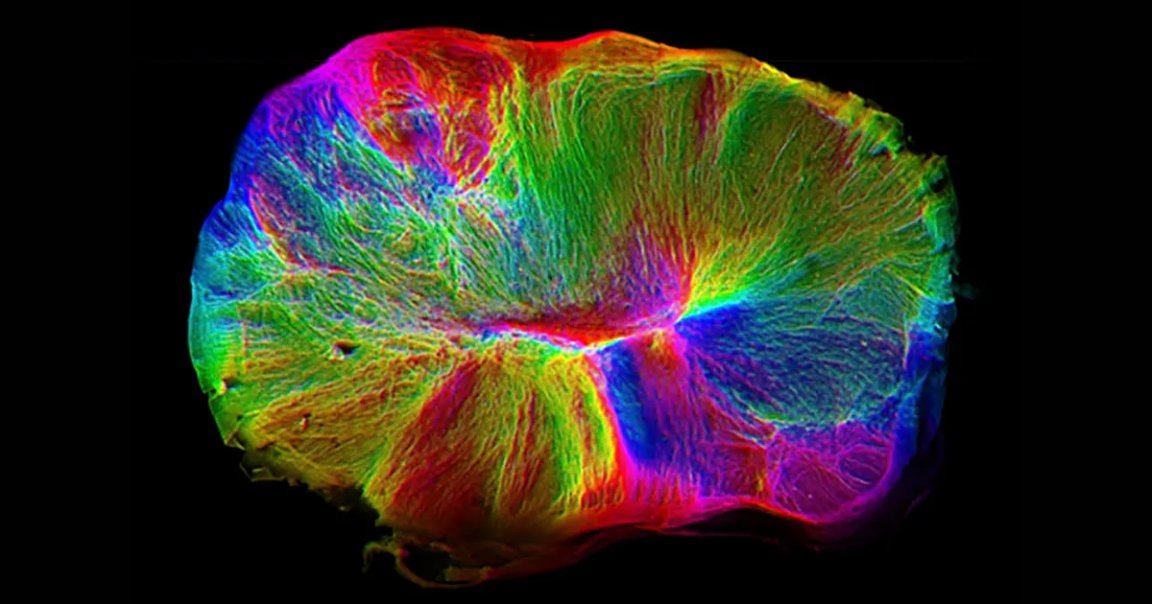
Mini-Brain
Cambridge scientists say they’ve grown a miniature brain in a petri dish that seizes control of biological material around it.
Unlike previous lab-grown brains, this one actively will send out “tendrils” to connect to a spinal cord removed from a mouse, according to The Guardian — and can then use its new spine to control a mouse muscle attached to it.
It’s…Alive?
The brain, which The Guardian described as a “lentil-sized grey blob of human brain cells,” represents a significant step forward because of its eerie ability to connect to a rudimentary nervous system. Its creators are hoping they’ll be able to use it — and other organoids like it — to study brain and nerve diseases on a small, controlled scale.
“Obviously we’re not just trying to create something for the fun of it,” said study leader Madeline Lancaster in an interview with The Guardian. “We want to use this to model diseases and to understand how these networks are set up in the first place.”
Can It Suffer?
The researchers estimate that the new lab-grown brain has the approximate sophistication of a human fetus that’s developed for between 12 and 16 weeks — but they don’t think there’s cause for ethical concern yet, according to The Guardian. “It’s still a good idea to have that discussion every time we take it a step further,” Lancaster told the newspaper. “But we agree generally that we’re still very far away from that.”
READ MORE: Scientists grow ‘mini-brain on the move’ that can contract muscle [The Guardian]
More on lab-grown brains: Lab-Grown Mini Kidneys Keep Spawning Rogue Brain Cells